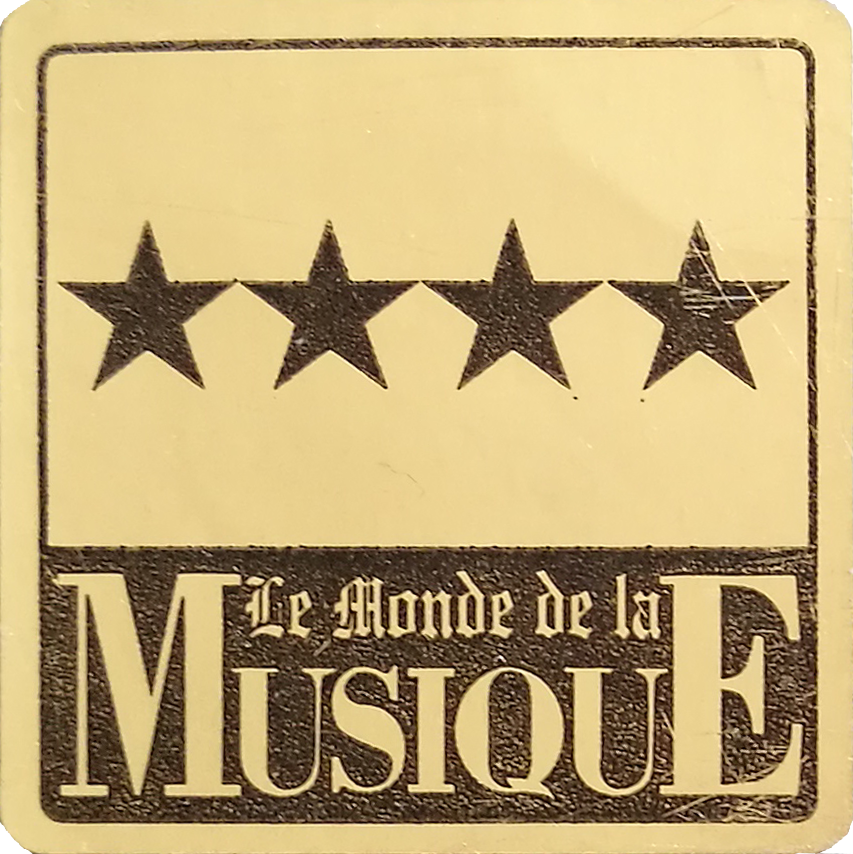Dél-alföldi Saxophone Ensemble Tótágas
Their musical chemistry is something special. When we Hungarians want to say that too many cooks spoil the broth, we come up with the proverb that “two pipers in the same inn are one too many”. Yet these three pipers get on like a house on fire. They are: Béla Ágoston, Béla Burány and Balázs Szokolay. The two Bélas and Balázs listen to each other, feed off each other and make music together.
Péter Palla
Artists
Béla Ágoston - alto sax (1, 3, 7); tenor sax (4, 5, 6); bass clarinet (8, 9); voice and throat-singing (1, 2)
Béla Burány Pöcök - soprano sax (1, 4, 6, 7); baritone sax (3, 5, 8, 9)
Balázs Szokolay Dongó - soprano sax (1, 3, 5, 6,7); bass clarinet (9); traditional recorder (8, 9)
Róbert Benkő - double bass
Tamás Geröly Sándor - drums
About the album
Composed by Béla Ágoston (3, 5, 7), Béla Burány Pöcök (6, 8) and Balázs Szokolay Dongó (1, 4, 9)
The recording was sponsored by the Ministry of Cultural Heritage and the National Cultural Fund of Hungary
Recorded at Studio 202, Budapest on 7-9/05/2004
Recorded and mixed by Péter Glaser
Cover art by Meral Yasar based on photos by Lenke Szilágyi
Portrait photo: István Huszti
Art-Smart by GBMY
Produced by László Gôz
Executive producer: Tamás Bognár
Reviews
Nicholas Brémaud - Le Monde de la musique **** (fr)
DR - Samizdjazz *** (fr)
Joël Pailhé - Jazzman (fr)
Martin Ellenbruch - My Way (de)
Juan Carlos Abelenda - Tomajazz.com (es)
Angelo Leonardi - All About Jazz - Italia **** (it)
Szigeti Péter - Gramofon **** (hu)
Olasz Sándor - Rockinform (hu)
kyt - Magyar Narancs **** (hu)
Laczkó Krisztián - Exit Magazin (hu)
Dél-alföldi Saxophone Ensemble: Tótágas
The album is available in digital form at our retail partners
Music from the heart, from the heart of Europe
Lord Palmerston, the 19th century British statesman once called the Hungarians “the Irish of the East”. He didn’t mean it as a compliment but I’ve never felt offended by the comparison. For all that, I had no occasion to ponder its veracity until I came across Irish music for the first time. It was not some point of musical theory but the sheer emotional impact of Irish music that made me think of my homeland.
Conversely, the music of the Dél-alföldi Saxophone Ensemble is so intensely Hungarian that the Irish come immediately to mind. I must have tried four or five times to listen through this album painstakingly, with a ‘critical’ ear. Not once did I succeed in my nitpicking efforts, because the music had such a holistic impact on me. It’s possible, in fact probable that it was the musicians’ deliberate intention to have that total effect. Yet, their magnificent teamwork does not exclude improvisation. At times their improvisation totally submits to the logic of Hungarian folk music – yet, on other occasions, little clusters of simultaneous free improvisation weave around the carefully planted trees of composed elements. These pre-written parts, however, are all rooted in the Hungarian tradition or, in certain cases, in the folklore of the neighbouring countries.
The Dél-alföldi Saxophone Ensemble was formed by three young sax-players all born and, by and large, still living in the Southern and South-Eastern end of the Great Hungarian Plains. In fact they derive their name from the region of their birth. (“Dél-alföldi” means “of the Southern Plains”). They used to play in different folk-bands, street-bands, rock- and jazz-groups before a series of chance meetings brought them together. Their common ground is not just a matter of geography, although geography matters too because the corner of Hungary they come from practically borders on the Balkans and that is also something that you can hear in their music. The territory they really share is that curious margin where the sometimes majestically plaintive, sometimes violently passionate music of the Hungarian plains meets free jazz.
Their musical chemistry is something special. When we Hungarians want to say that too many cooks spoil the broth, we come up with the proverb that “two pipers in the same inn are one too many”. Yet these three pipers get on like a house on fire. They are: Béla Ágoston, Béla Burány and Balázs Szokolay. The two Bélas and Balázs listen to each other, feed off each other and make music together. But beside the magnificent teamwork there’s also room for a great deal of spontaneity. Careful compositions, head arrangements and unrestrained blowing blend effortlessly together when they play. They also have a phenomenal two-man rhythm section in the persons of Róbert Benkő, perhaps the finest bass player of the Hungarian avant-garde who combines virtuosity with mature subtlety, – and percussionist Tamás Geröly, a tremendously inventive and witty musician, both as a soloist and as an accompanist.
It’s not easy to fit the music of the Dél-alföldi Saxophone Ensemble into a neat category but I, for one, don’t think it matters. One of the reasons I’m not too bothered by such definitions is that I agree with the late Stan Getz who considered all jazz to be folk-music. Of course, music like this is not born in a vacuum. To be fair, the Dél-alföldi Saxophone Ensemble owes a lot to that very Hungarian brand of jazz created by the brilliant saxophonist Mihály Dresch, who in turn is much indebted to the original pioneer of that school – the free improvising pianist and contemporary composer, György Szabados. No wonder then that it was one of Szabados’ remarks that came to mind on hearing the three Dél-alföldis blow together. Szabados defined tonality as ‘being plucked from the same string’. The Dél-alföldi musicians display staggering levels of communication and empathy between themselves and with their audience. This tremendous rapport makes their sound both complex and totally absorbing, yet engaging and highly approachable.
Péter Pallai
Discography
Dél-alföldi Saxophone Ensemble: Esthajnal (Rana in fabula, 1997)
Dél-alföldi Saxophone Ensemble: Kalamona (November Music, 2000)

